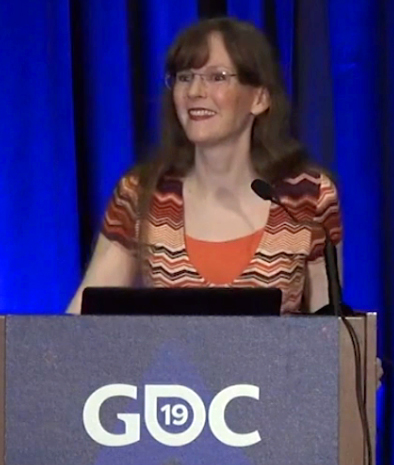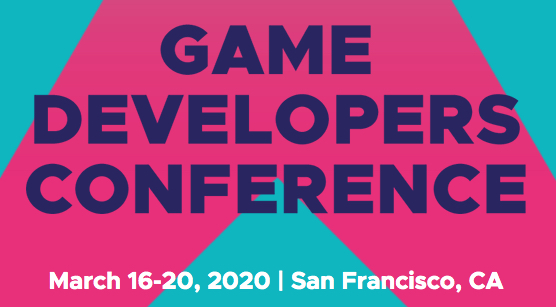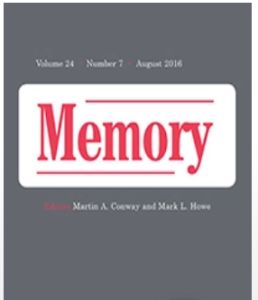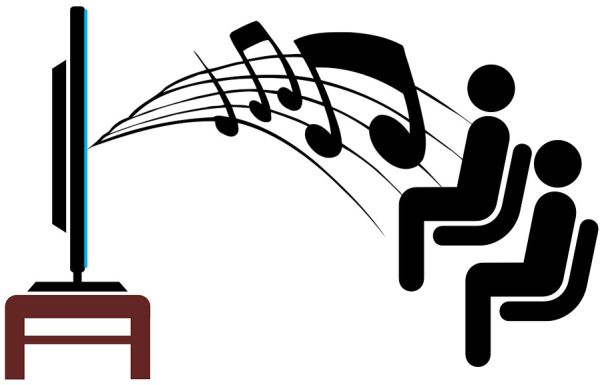
Featured Blog | This community-written post highlights the best of what the game industry has to offer. Read more like it on the Game Developer Blogs or learn how to Submit Your Own Blog Post
Video Game Composers: The Importance of Themes (GDC 2020)
Game composer Winifred Phillips shares additional research from her Game Developers Conference 2020 lecture, "The Importance of Themes: Creating Musical Signatures for your Games." The lecture will be presented as a GDC Virtual Talk (available for free).


By Winifred Phillips | Contact | Follow
Welcome! I'm videogame composer Winifred Phillips. As most of us are no-doubt aware, the Game Developers Conference 2020 has been postponed. This means that the yearly conference's rich and diverse schedule of lectures will not be performed live next week during GDC 2020 at the Moscone Center in San Francisco. I was really looking forward to presenting my lecture, entitled "The Importance of Themes: Creating Musical Signatures for your Games." Having given GDC presentations every year since 2015, I consider the Game Developers Conference to be an indispensable event for both my career and my personal enrichment as a game music composer. While the postponement is a set-back for the entire game development community, I'm glad to share some awesome news! A portion of the GDC 2020 lecture schedule will still take place as planned - albeit from a much different venue. Instead of in-person presentations, GDC plans to stream many of their previously scheduled GDC talks during GDC week as part of a "virtual conference." This means that I can share my lecture as a GDC Virtual Talk. Best of all, all of the GDC Virtual Talks will be available for free!
 My virtual talk will focus on the best ways to create memorable thematic material. Catchy melodies can help to enhance a game's distinctive character and originality, which can subsequently lead to a more memorable gameplay experience. In preparing my presentation, I conducted quite a bit of research. Because of time constraints, not all of that scholarly research made it into my final presentation. I was sorry to have to cut those materials - I thought it was pretty interesting stuff! So let's now discuss some of that extra info in this article. We won't be delving into the actual subject matter of my lecture, since I'll be saving that material for my actual presentation that will be included in the slate of GDC 2020 Virtual Talks. But the general relationship between music and memory is a fascinating area of study. If our music can help games to stick in the minds of players, then it should be useful for us to understand some expert scholarly viewpoints on the relationship between music and memory.
My virtual talk will focus on the best ways to create memorable thematic material. Catchy melodies can help to enhance a game's distinctive character and originality, which can subsequently lead to a more memorable gameplay experience. In preparing my presentation, I conducted quite a bit of research. Because of time constraints, not all of that scholarly research made it into my final presentation. I was sorry to have to cut those materials - I thought it was pretty interesting stuff! So let's now discuss some of that extra info in this article. We won't be delving into the actual subject matter of my lecture, since I'll be saving that material for my actual presentation that will be included in the slate of GDC 2020 Virtual Talks. But the general relationship between music and memory is a fascinating area of study. If our music can help games to stick in the minds of players, then it should be useful for us to understand some expert scholarly viewpoints on the relationship between music and memory.
First, let's take a moment to watch and listen as bassist Davide Biale runs through 40 years of top game music in 2 minutes. Notice how many of these themes are instantly recognizable, and how evocative they can be of the games from which they came:
It's amazing how a simple video game melody, or even just a fraction of such a melody, can immediately bring to mind a vivid mental image of gameplay. There's clearly a strong connection between the sound of the music and the recollections we associate with it. In a continuing quest to understand how the human mind records past events, scientists have conducted numerous experiments meant to reveal the mechanism by which music evokes memories. Let's take a look at a couple of these studies.
They're playing our song
We've all experienced a moment in which a piece of music starts playing, and it instantly brings back memories of a significant event in our lives. Those music-invoked memories can be especially vivid. In the case of a video game, a piece of game music can summon an amazingly clear recollection of the gameplay that was originally experienced while hearing that song. Because of this, game music often acts as an ambassador for the game from which it comes, since it kindles associated memories more potently than any other stimulus, including visual cues. 
In an interesting research study published in the journal Memory, a team from the psychology and neurology departments of the University of Iowa gave us some hard evidence to support the observation that music activates memories more potently than visual stimuli.
In the study, a pool of subjects were exposed to a set of 30 famous songs. They were also shown a set of 30 famous faces. Afterwards, they were interviewed regarding memories that were triggered by the experience. Uniformly, the study subjects were able to report many more vivid autobiographical memories with a much greater number of details from the music than from the visual stimulus.
 What does this mean for game publishers and developers? Well, this may mean that exposure to an iconic musical theme from a video game is a more effective marketing tool than any visual-centric approach. Musical nostalgia surpasses visual nostalgia. The lure of familiar music can bring gamers back to keep playing their favorites. Musical nostalgia can even cement the loyalty of fans as their favorite games transform into full-blown franchises. For game composers, this is an important consideration when we're contemplating what musical style we'll be pursuing, and whether that style should include memorable thematic content.
What does this mean for game publishers and developers? Well, this may mean that exposure to an iconic musical theme from a video game is a more effective marketing tool than any visual-centric approach. Musical nostalgia surpasses visual nostalgia. The lure of familiar music can bring gamers back to keep playing their favorites. Musical nostalgia can even cement the loyalty of fans as their favorite games transform into full-blown franchises. For game composers, this is an important consideration when we're contemplating what musical style we'll be pursuing, and whether that style should include memorable thematic content.
Just in case you might enjoy another video illustrating how game themes can stick in the mind, here's a compilation from violinist Rob Landes that includes some of the most memorable game music from 1972 to 2018:
Let's face the music
We've looked at how familiar music can bring back vivid memories. Now let's ask a different question: does this phenomenon have any effect on people when they're hearing music they've never heard before? Can music enhance memory, even if it's unfamiliar? A team of researchers from the University of London and the University of Westminster set up an interesting experiment to try to answer this question. They brought in study subjects to watch an episode of the comedy TV show Friends. During the show, they embedded a custom-produced advertisement.  For some of the study subjects, this advertisement was presented with no musical accompaniment. For others, the advertisement included instrumental music. Still others saw the TV ad with a full-blown musical jingle, complete with lyrics. After the Friends episode ended, the study participants were interviewed about their recollection of the advertisement they'd seen somewhere in the middle of the Friends show.
For some of the study subjects, this advertisement was presented with no musical accompaniment. For others, the advertisement included instrumental music. Still others saw the TV ad with a full-blown musical jingle, complete with lyrics. After the Friends episode ended, the study participants were interviewed about their recollection of the advertisement they'd seen somewhere in the middle of the Friends show.
The results showed that the advertised product was remembered in dramatically more detail when music was used in the advertisement. This was true, whether the music included sung lyrics or not. The sung jingle only outpaced the background music in a significant way when study participants were asked to recall the music itself, rather than the details of the product being advertised. In sharp contrast, the advertisement containing no music at all performed much more poorly in terms of audience recall.
 In the context of our work as game composers, this study points out some intriguing possibilities - particularly when we're considering where music should be implemented during gameplay. If music assists players in remembering details, then it makes a lot of sense to include music during gameplay sequences in which memorization is crucial to success. A tutorial springs to mind as the most obvious example. When we're learning how to play a new game, it becomes very important to absorb and remember what we're learning. Including music during a tutorial may be a good way to help players to remember the included gameplay instructions.
In the context of our work as game composers, this study points out some intriguing possibilities - particularly when we're considering where music should be implemented during gameplay. If music assists players in remembering details, then it makes a lot of sense to include music during gameplay sequences in which memorization is crucial to success. A tutorial springs to mind as the most obvious example. When we're learning how to play a new game, it becomes very important to absorb and remember what we're learning. Including music during a tutorial may be a good way to help players to remember the included gameplay instructions.
On the other hand, we may be interested in getting players to remember the music itself, perhaps as an iconic symbol of a game franchise. In this case, it may actually be beneficial to include a vocal or choral theme, since vocal music with lyrics tends to stick in the mind.
Conclusion
So now we've taken a look at two scholarly research studies that have shed more light on the power of music to enhance recall. In my presentation that will be a part of the Game Developers Conference Virtual Talks, I'll be exploring how musical themes can make a game more memorable, and ways in which game composers can implement themes into their work. I hope you've enjoyed this article, and that you'll avail yourself of all the great educational content that GDC will be offering as a part of its Virtual Conference!
 Popular music from composer Winifred Phillips' award-winning Assassin's Creed Liberation score is currently being performed live by a top 80-piece orchestra and choir as part of the Assassin's Creed Symphony World Tour, which kicked off in 2019 with its Paris premiere. As an accomplished video game composer, Phillips is best known for composing music for games in five of the most famous and popular franchises in gaming: Assassin’s Creed, God of War, Total War, The Sims, and LittleBigPlanet. Phillips' other notable projects include music for the triple-A first person shooter Homefront: The Revolution (Deep Silver), and numerous virtual reality games from such accomplished developers as Supermassive Games, High Voltage Software, and Armature Studio. She is the author of the award-winning bestseller A COMPOSER'S GUIDE TO GAME MUSIC, published by the MIT Press. As the foremost authority on music for interactive entertainment, Winifred Phillips has given lectures at the Library of Congress in Washington DC, the Society of Composers and Lyricists, the Game Developers Conference, the Audio Engineering Society, and many more. Phillips’ enthusiastic fans showered her with questions during a Reddit Ask-Me-Anything session that went viral, hit the Reddit front page, received 14.9 thousand upvotes, and became one of the most popular gaming AMAs ever hosted on Reddit.
Popular music from composer Winifred Phillips' award-winning Assassin's Creed Liberation score is currently being performed live by a top 80-piece orchestra and choir as part of the Assassin's Creed Symphony World Tour, which kicked off in 2019 with its Paris premiere. As an accomplished video game composer, Phillips is best known for composing music for games in five of the most famous and popular franchises in gaming: Assassin’s Creed, God of War, Total War, The Sims, and LittleBigPlanet. Phillips' other notable projects include music for the triple-A first person shooter Homefront: The Revolution (Deep Silver), and numerous virtual reality games from such accomplished developers as Supermassive Games, High Voltage Software, and Armature Studio. She is the author of the award-winning bestseller A COMPOSER'S GUIDE TO GAME MUSIC, published by the MIT Press. As the foremost authority on music for interactive entertainment, Winifred Phillips has given lectures at the Library of Congress in Washington DC, the Society of Composers and Lyricists, the Game Developers Conference, the Audio Engineering Society, and many more. Phillips’ enthusiastic fans showered her with questions during a Reddit Ask-Me-Anything session that went viral, hit the Reddit front page, received 14.9 thousand upvotes, and became one of the most popular gaming AMAs ever hosted on Reddit.
Follow her on Twitter @winphillips or visit her website at winifredphillips.com.
About the Author(s)
You May Also Like







.jpeg?width=700&auto=webp&quality=80&disable=upscale)








